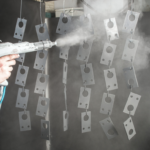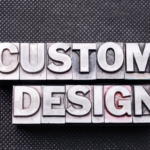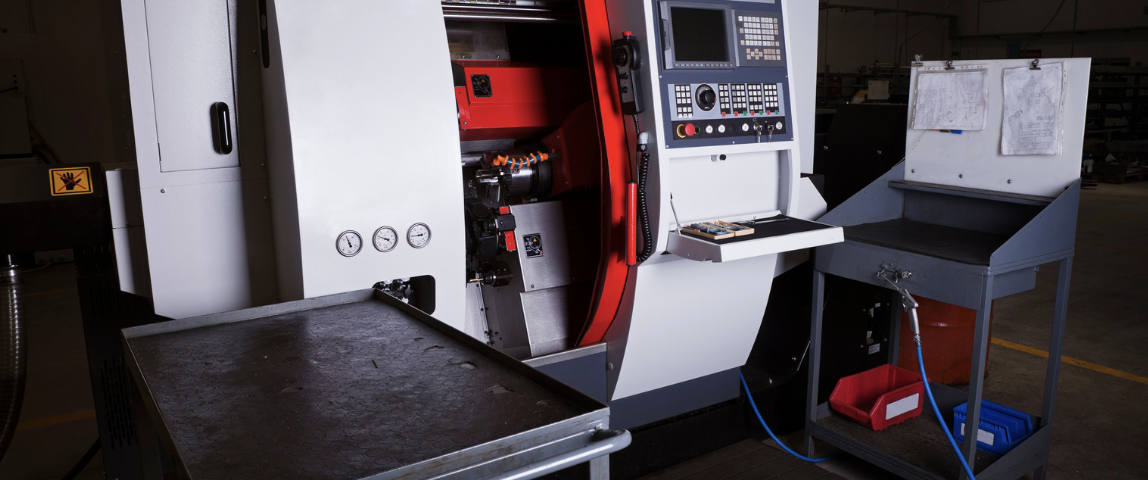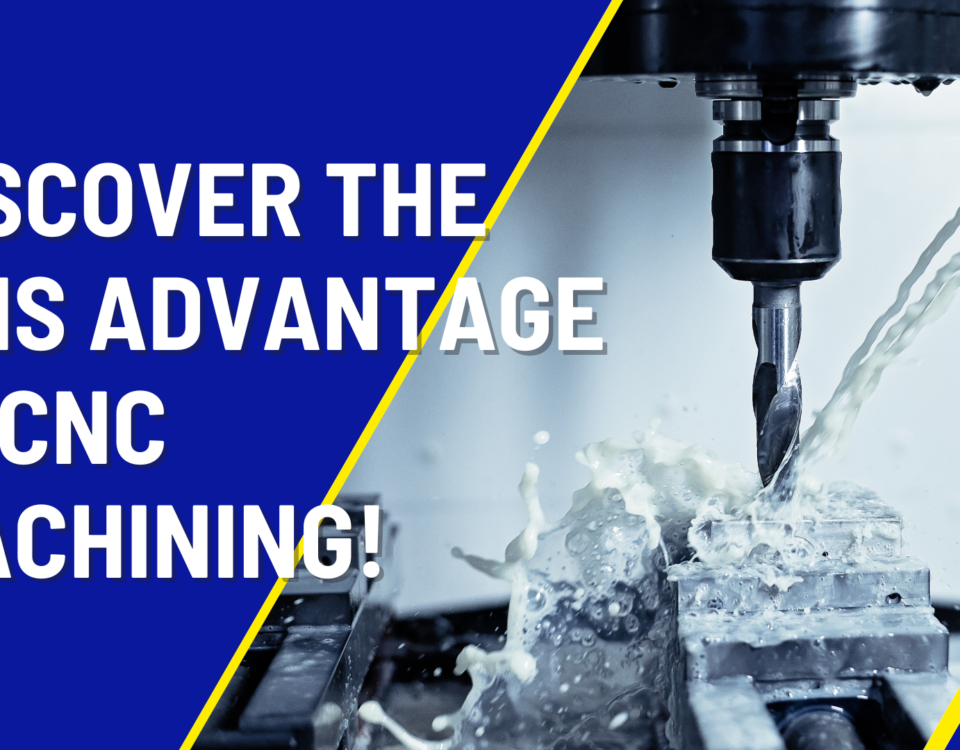
Exploring the Benefits of AMS’s Powder Coating Services
December 1, 2023
Expert Solutions Transform Custom Metal Manufacturing Over The Years
March 1, 2024What Makes CNC Machining Superior To Conventional Machining
January 1, 2024 – Discover CNC machining’s advantages with AMS: precision, efficiency, safety, and eco-friendliness in modern manufacturing.
The manufacturing industry consistently seeks innovations that enhance efficiency, accuracy, and quality. Computer Numerical Control (CNC) machining is a pivotal advancement, redefining the fabrication process. With its roots in the 1940s, it has evolved dramatically, offering significant benefits over traditional methods. Assessing the benefits of CNC machining over traditional machining reveals its pivotal role in modern production, clearly outperforming traditional methods. This critical exploration highlights CNC machining’s superior impact on advanced manufacturing processes.
The Essentials of CNC Machining
CNC machining is a manufacturing process where pre-programmed computer software dictates the movement of factory tools and machinery. This method allows for precise control of complex machinery like lathes, mills, grinders, and routers.
With CNC machining, a single set of prompts can execute complex cuts and tasks accurately, making it ideal for creating intricate parts and components. It’s widely used across various industries, including automotive, aerospace, and healthcare, for producing precision parts, complex components, and detailed engravings. This type of machining stands out for its efficiency and precision in transforming raw materials into finished products.
Enhanced Precision and Accuracy in CNC Machining
CNC machining is known for its exceptional precision, revolutionizing the manufacturing industry. It allows for complex and intricate designs with great accuracy, consistently producing even the most detailed patterns. This precise approach ensures high-quality and uniform products across all batches, improving appearance and functionality. With these machines, every component precisely meets its specifications, setting a new standard in manufacturing quality.
Increased Efficiency and Productivity for CNC Machining
CNC machining revolutionizes manufacturing with its unparalleled speed, vastly outdoing traditional methods. Tasks that typically spanned hours are now completed in minutes, streamlining the entire manufacturing process. This efficiency leap is a game-changer, drastically reducing the need for manual labor and consequently cutting labor costs.
Moreover, the increased speed is not at the expense of quality; Computer-programmed manufacturing ensures high precision and consistency across all products.
Consequently, AMS has witnessed a significant boost in production throughput, enabling us to complete projects faster and increase overall productivity. This advancement positions CNC machining as a critical tool for modern manufacturing environments, adept at meeting rapidly changing market demands and high-volume production needs.
Improved Flexibility and Versatility
The versatility of CNC machines extends to their ability to manage a wide array of materials – from metals to plastics – and accommodate an extensive range of design complexities. This adaptability makes them invaluable for industries requiring bespoke solutions or those undergoing frequent design changes.
Unlike conventional machines, which may necessitate time-consuming setup changes for each new task, these machines can be quickly and easily reprogrammed. Their exceptional flexibility significantly reduces the time and cost associated with retooling for different projects, a common challenge in conventional machining. This capability enables us to undertake short-run productions economically, making them ideal for custom, one-off orders, or prototyping. This capability saves time and significantly reduces the likelihood of errors, ensuring a smoother production flow.
As a result, AMS can respond more swiftly to client needs, making CNC machining an essential tool for dynamic and responsive manufacturing.
Enhanced Safety
CNC machining significantly enhances safety by minimizing direct human interaction with tools, contrasting conventional machining’s higher safety risks. This reduced manual intervention lowers the likelihood of accidents, making CNC a safer alternative for complex manufacturing tasks.
Cost-Effectiveness in the Long Run
Despite its higher initial investment, CNC machining proves cost-effective in the long run. Its precision drastically reduces material waste, a major cost-saving factor. Additionally, the automation central to CNC processes lowers labor costs, as fewer operators are needed. Furthermore, the accuracy of CNC machinery minimizes errors, leading to less rework and material usage.
Over time, reduced material waste, lower labor costs, and minimized errors from computer-programmed manufacturing lead to a continuous reduction in production costs. We get to pass the savings on to you.
Advanced Software Integration
Advanced software integration plays a pivotal role in optimizing CNC machining processes, setting it apart from the manual adjustments characteristic of conventional machining. This software enables precise control and fine-tuning of machinery, enhancing accuracy and efficiency. Unlike traditional methods, where adjustments are often time-consuming and prone to human error, CNC’s software-driven approach streamlines operations, allowing for quick, accurate, and repeatable modifications, thus elevating the overall production quality and consistency.
Environmental Considerations
CNC machining stands out as an environmentally friendlier manufacturing option. Its precision significantly reduces waste, while advanced technology ensures energy efficiency during operation. Furthermore, the enhanced accuracy of these machines means less material is used unnecessarily, and their compatibility with recyclable materials further bolsters their eco-friendly credentials, contributing to sustainable manufacturing practices.
Choosing Between CNC and Conventional Machining
Deciding between CNC and conventional machining hinges on the project’s specifics. CNC machining is ideal for complex, precision-driven tasks where consistency across high volumes is crucial. Its speed and accuracy are unmatched for intricate designs.
Conversely, conventional machining suits simpler projects or where unique craftsmanship is valued. It’s preferred for one-off jobs or when the material in use doesn’t suit CNC processes. Ultimately, the choice depends on complexity, volume, precision requirements, and cost constraints, ensuring the selected method aligns perfectly with the project’s goals and specifications.
AMS Elevates Manufacturing with Superior Machining Solutions
Embracing CNC machining offers advantages over conventional methods, marking a significant stride in manufacturing technology. With its unparalleled precision, efficiency, and consistency, computerized manufacturing meets today’s demand for complex and high-volume production. The integration of advanced software and automation not only enhances quality but also aligns with environmental sustainability goals.
As the industry evolves, adopting these modern techniques is crucial for staying competitive and driving future advancements. For CNC machining services, AMS stands ready to deliver machined parts—partner with AMS to leverage the cutting edge of manufacturing excellence.
The Role of Customization in CNC Machining


